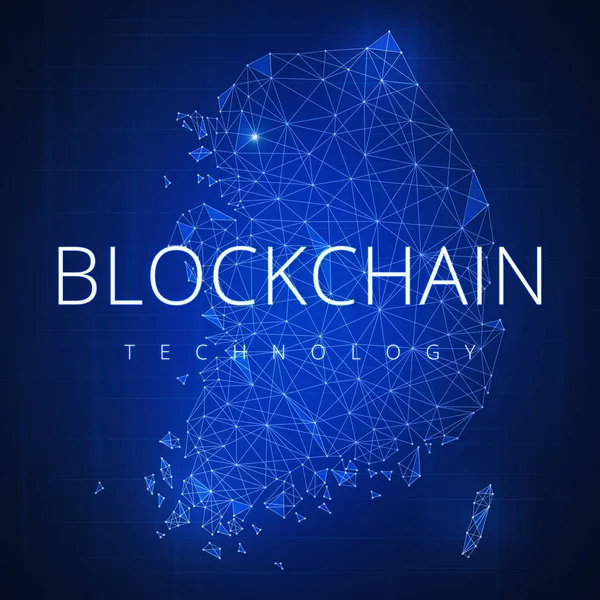Blockchain Technology in the Real Sector: Use Cases and the Role of Golden Coin
Blockchain technology has long expanded beyond the realm of cryptocurrencies and is actively used in various sectors of the real economy. This innovative technology improves business processes, increases transparency in transactions, and reduces risks. In recent years, blockchain has been increasingly applied in industries such as logistics, manufacturing, energy, and healthcare. Moreover, projects like Golden Coin contribute to the digitalization of real assets and promote the use of blockchain to ensure investment security and asset management.

What is Blockchain?
Before diving into specific use cases, let’s recap the basic principles of blockchain technology. Blockchain is a distributed database or “digital ledger” maintained in a synchronized state by all participants in the network. Transaction or activity data is recorded in blocks, which are then linked together in a chain. The key feature of blockchain is its transparency and immutability: once data is recorded, it cannot be changed without the consensus of all network participants. This makes blockchain one of the most reliable technologies for recording and storing information.
Application of Blockchain in the Real Sector
Logistics: Optimizing Supply Chains
Logistics is one of the most promising areas for blockchain implementation. Managing supply chains requires precision, timeliness, and trust between all participants. Traditional systems often encounter issues such as inaccurate documentation, data transfer errors, or fraud. Blockchain helps solve these problems by ensuring transparency at every stage of the process — from production to the final delivery to the consumer.
Example: TradeLens
One successful case is the TradeLens project, developed by IBM and Maersk. This blockchain-based platform tracks cargo in real-time. Every operation with goods is recorded in the blockchain, and all participants (logistics companies, ports, customs, etc.) can access up-to-date information. This reduces data processing time, minimizes the risk of errors, and simplifies customs procedures. It is estimated that implementing TradeLens can cut logistics costs by up to 20%, making it an attractive solution for international shipping.
Manufacturing: Quality Control and Data Management
Manufacturing companies are increasingly adopting blockchain for quality control and process management at every production stage. Blockchain allows the recording of data on every component or part used in production, helping to prevent the use of counterfeit or substandard materials.
Example: General Electric
General Electric (GE) uses blockchain to track the components used in the production of aircraft engines and industrial equipment. By recording data on each part in the blockchain, the company can easily trace the source of any defects, which greatly simplifies the process of identifying and resolving issues. This also helps ensure the safety of the final products.
Energy: Decentralized Distribution Systems
Blockchain has also found its way into the energy sector, facilitating the creation of decentralized energy distribution systems, particularly relevant for renewable sources like solar or wind energy.
Example: Brooklyn Microgrid
The Brooklyn Microgrid project in New York allows residents to trade surplus solar energy. Solar panel owners can sell their excess energy to neighbors using blockchain technologies. All transactions are recorded on the blockchain, ensuring transparency and eliminating the need for intermediaries. This solution also supports the development of green energy and reduces dependence on centralized energy suppliers.
Healthcare: Managing Medical Data
Healthcare is one of the most sensitive industries regarding data security. Blockchain helps ensure the secure storage and exchange of medical information between institutions and patients.
Example: MedRec
The MedRec project uses blockchain to manage patient medical records. It allows patients to control their data and provides doctors with secure access to information. This means that patients can easily transfer their medical records between clinics, greatly simplifying the diagnosis and treatment process.
Tokenizing Real Assets with Blockchain
One of the most promising opportunities offered by blockchain is asset tokenization. This process converts real assets, such as real estate, art, or stocks, into digital form, allowing them to be freely traded in markets. Tokenization makes investment in such assets accessible to a broader range of investors and drives the development of new financial products.
The Role of Golden Coin in Asset Tokenization
Golden Coin plays a crucial role in the digitalization of real assets through blockchain. Golden Coin represents a token backed by real assets such as gold, real estate, or other resources. This makes Golden Coin not only a convenient tool for trading and investing but also reduces risks associated with the volatility of traditional cryptocurrencies. Investors can be confident that each token is backed by a real asset, making it more stable and secure.
Advantages of Tokenization with Golden Coin:
- Transparency and Security: Blockchain ensures the immutability of transaction data, making the process of buying and selling assets completely transparent.
- Accessibility for a Wide Audience: Even small investors can buy a portion of a tokenized asset, opening new opportunities for those who previously couldn’t invest in expensive objects like real estate or gold.
- International Transactions: With Golden Coin, investors can easily conduct transactions with assets worldwide without the need for complex banking procedures.
- Inflation Protection: Golden Coin, backed by real assets such as gold, helps protect savings from inflation and economic crises.
Conclusion
Blockchain technology has already proven its effectiveness in the real economy, offering solutions to issues like transparency, data security, and asset management. Examples from logistics, manufacturing, energy, and healthcare demonstrate how blockchain can significantly improve processes and reduce risks.
However, one of the most significant innovations of blockchain is asset tokenization, which makes investments more accessible and transparent. The Golden Coin project plays an important role in this area, providing investors with the opportunity to manage their assets through tokens backed by real resources. The combination of blockchain and real assets in Golden Coin creates a stable and secure platform for digital investments, opening new horizons in the world of tokenization.

